Introduction
Wanna earn some extra bucks by mastering the art of reselling? Whether you're looking to turn a side hustle into a full-time gig or just earn some extra cash on the side, learning how to become a reseller could be your golden ticket! Imagine sourcing trendy products, selling them at a profit, and enjoying the freedom of running your business from anywhere.
This step-by-step guide will walk you through everything you need to know, from selecting the perfect niche to mastering the art of marketing. With the rise of e-commerce, now is the perfect time to explore this rewarding venture.
Whether you're interested in being a SaaS reseller, a chatbot reseller, or diving into any niche that sparks your passion, you’ll find valuable insights and tips here.
Get ready to unlock your entrepreneurial potential and embark on your reseller journey today!
What is a Reseller?
A reseller is an entrepreneur who purchases products from suppliers or manufacturers at a lower price and sells them at a higher price to generate profit.
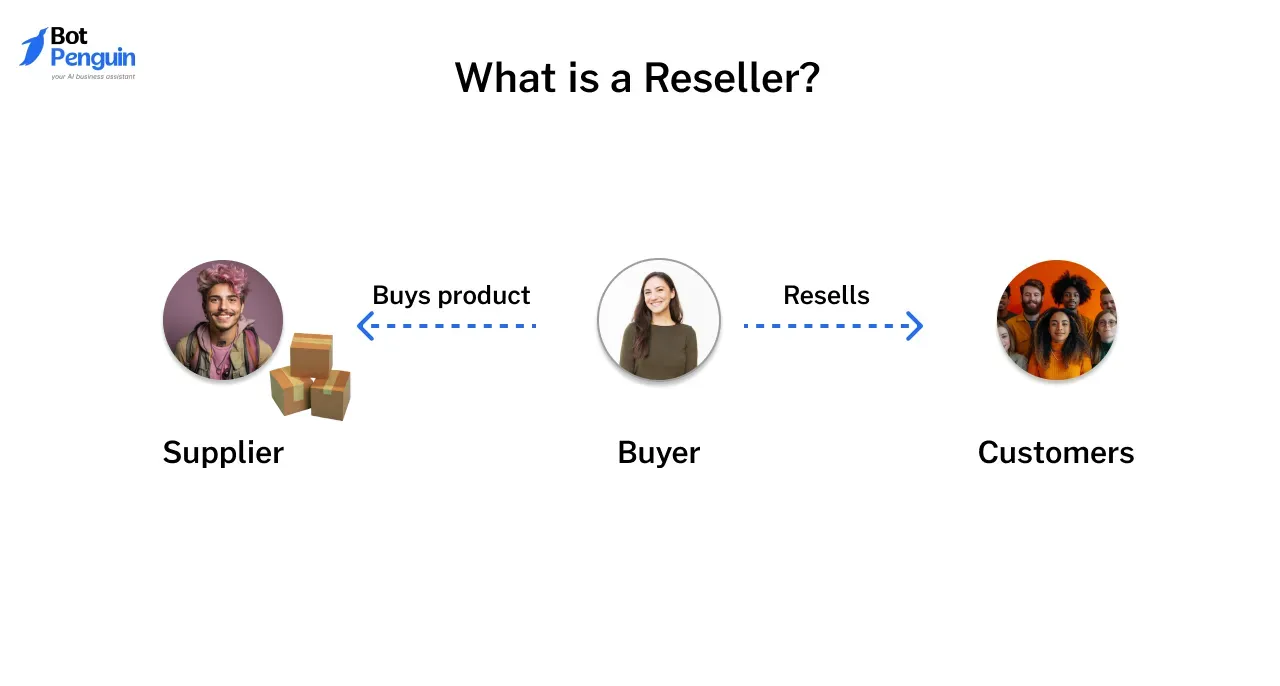
Unlike traditional retailers burdened with large inventories and significant overhead costs, resellers enjoy a more flexible business model. Many resellers operate from the comfort of their homes, leveraging platforms like eBay, Amazon, or Shopify to reach consumers.
The reseller business model offers an accessible entry point into the market by utilizing existing products and well-established brands. This means aspiring resellers don’t need to invest time and resources into developing or manufacturing new items.
Instead, their primary focus is on identifying popular, in-demand products, sourcing them efficiently, and successfully delivering them to consumers.
Types of Reselling Products

When considering how to become a reseller, it's essential to understand the diverse range of products you can sell.
Reselling encompasses various categories, and choosing the right niche is crucial for success. Here are some common types of products resellers typically engage with:
Physical Products
Physical products are tangible items that can be shipped directly to customers. Resellers often source these items from wholesalers or manufacturers, selling them through online stores, marketplaces, or even in person. Popular categories include:
- Clothing and Accessories: Items like shirts, shoes, handbags, and jewelry are frequently resold. Many resellers focus on specific niches, such as vintage fashion or sustainable clothing, to attract targeted audiences.
- Electronics: High-demand items, including smartphones, laptops, and accessories, are popular among resellers due to their higher profit margins and strong market demand.
- Beauty and Skincare Products: Makeup, moisturizers, and haircare items are often resold, as they are consumable and can lead to repeat customers.
- Home Goods: Items like furniture, decor, and kitchen products are in high demand. Resellers frequently sell kitchen gadgets, bedding, and innovative storage solutions.
Digital Products
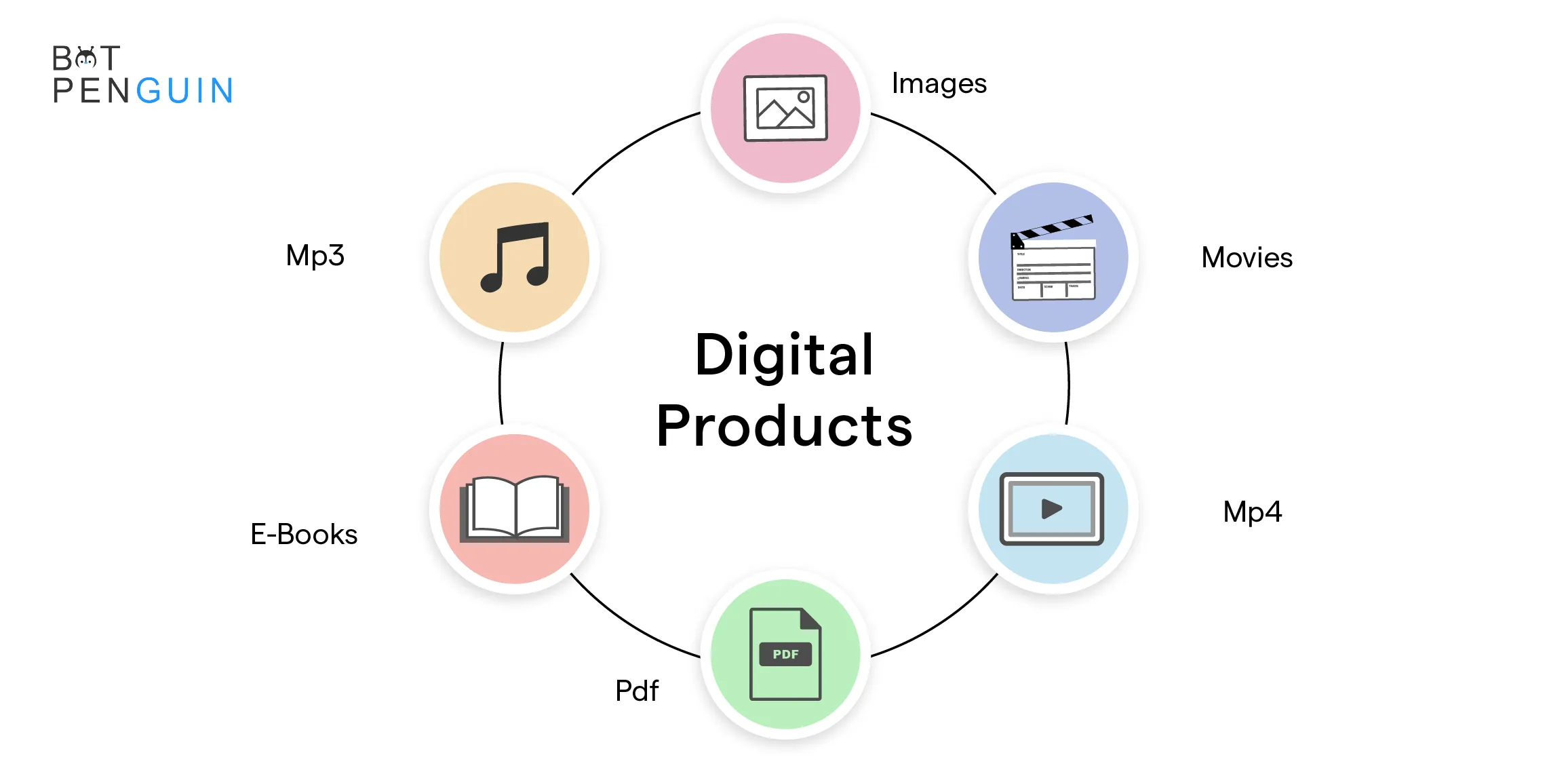
Digital products are intangible goods that can be sold online and delivered instantly. They offer the advantage of not requiring physical inventory, making them highly appealing to many resellers:
- E-books and Courses: Educational materials like e-books or online courses are straightforward to resell since they can be sold repeatedly without depleting stock.
- Digital Art: Reselling digital art, design templates, or logos is common, especially in creative sectors, allowing resellers to tap into a vibrant market.
Subscription-Based Products
Subscription-based products provide resellers with recurring revenue streams, often through digital items requiring a monthly or annual fee for continued access:
- Streaming Services: Certain companies offer resellers the ability to provide streaming service subscriptions, such as music or video platforms, for ongoing fees.
- Software-as-a-Service (SaaS): SaaS products involve software that users subscribe to regularly. Reselling SaaS platforms, especially those like customer relationship management (CRM) systems or accounting software, is a prevalent practice.
Additionally, chatbot software also fits this category, with many platforms operating on a subscription model where businesses pay regularly for continued access.
Software Reselling
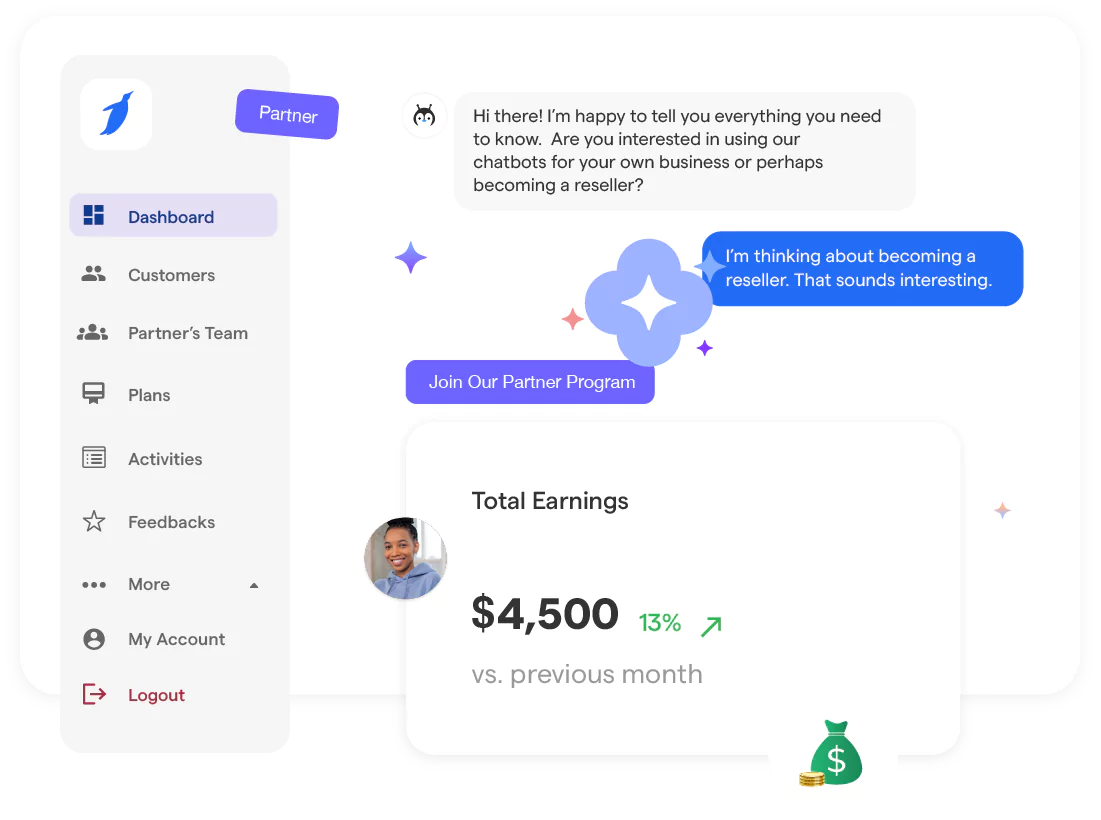
Software reselling has emerged as a highly profitable market, especially with the growing demand for SaaS products.
As a software reseller, you can offer licenses for a wide range of software, from antivirus programs to essential tools like BotPenguin chatbots.
Reselling BotPenguin's chatbot and similar products is one of the top business ideas today. With businesses constantly seeking cost-effective tech solutions to enhance their operations, the potential in this market is huge.
Here are the key things to know about software reselling:
- Platforms: Popular options include BotPenguin, ResellerClub, and Software Express.
- Cost Breakdown: The main investment is purchasing a reseller license, which can often be as affordable as $250. Some platforms may also charge a small setup fee.
- Profit Potential: Software reselling offers great profit margins, especially since businesses are often willing to invest in advanced tools like BotPenguin to improve their customer engagement and support.
Steps to Become a Reseller
Starting a reseller business may seem straightforward, but several essential steps ensure your long-term success.
Whether you’re wondering how to become a reseller or already exploring the market, the following steps will guide you through the process.
Step 1
Choose a Niche
Choosing a niche is the foundational step in your journey to become a reseller. A niche represents a specific segment of the market where you will concentrate your efforts.
By narrowing your focus, you can target your marketing strategies and differentiate yourself in a competitive landscape. Your niche could range from eco-friendly beauty products to tech gadgets.
A well-defined niche enables you to identify your target customers and comprehend their preferences. For instance, if you decide to sell chatbot software, understanding what features businesses look for—like customer engagement or automation capabilities—will help you position your products effectively.
Step 2
Research Suppliers
Once you’ve selected your niche, the next step is to find reliable suppliers. This research is critical, as the quality and pricing of the products you resell depend heavily on your suppliers.
Look for suppliers with a proven track record, good profit margins, and strong customer service. Resources like Alibaba, ThomasNet, and local trade shows can connect you with potential suppliers. Always request samples before placing large orders to ensure the products meet your quality standards.
If you want to minimize inventory costs, consider dropshipping. In this model, your supplier ships products directly to customers, freeing you from the burden of maintaining inventory.
For example, a SaaS reseller might work with software developers who handle customer support and updates, allowing the reseller to focus on marketing.
Step 3
Set Up Your Business
Before you start selling, it’s essential to establish your reseller business legally. This involves selecting a business structure (like LLC or sole proprietorship), registering your business name, and obtaining necessary permits or licenses.
Depending on your location and product type, specific licenses may be required for selling certain goods, like electronics or cosmetics.
After handling the legalities, set up your online storefront or choose a sales platform. Many resellers find success on e-commerce sites like eBay, Etsy, or Amazon due to their vast customer bases.
If you want full control, platforms like Shopify allow you to create a personalized online store without needing extensive technical skills.
Suggested Reading:
How to Make Loads of Money by Becoming a Chatbot Reseller?
Step 4
Source Products
Now comes the exciting part: sourcing the products you’ll sell. This step leverages the research you conducted on suppliers. The products you choose must align with your niche and appeal to your target audience.
Strive for a balance between quality and affordability. As your reseller business grows, consider diversifying your product range.
For instance, if you start with yoga mats, you could expand into yoga accessories like blocks or straps, increasing your average order value and attracting a broader audience.
Step 5
Market and Promote Your Products
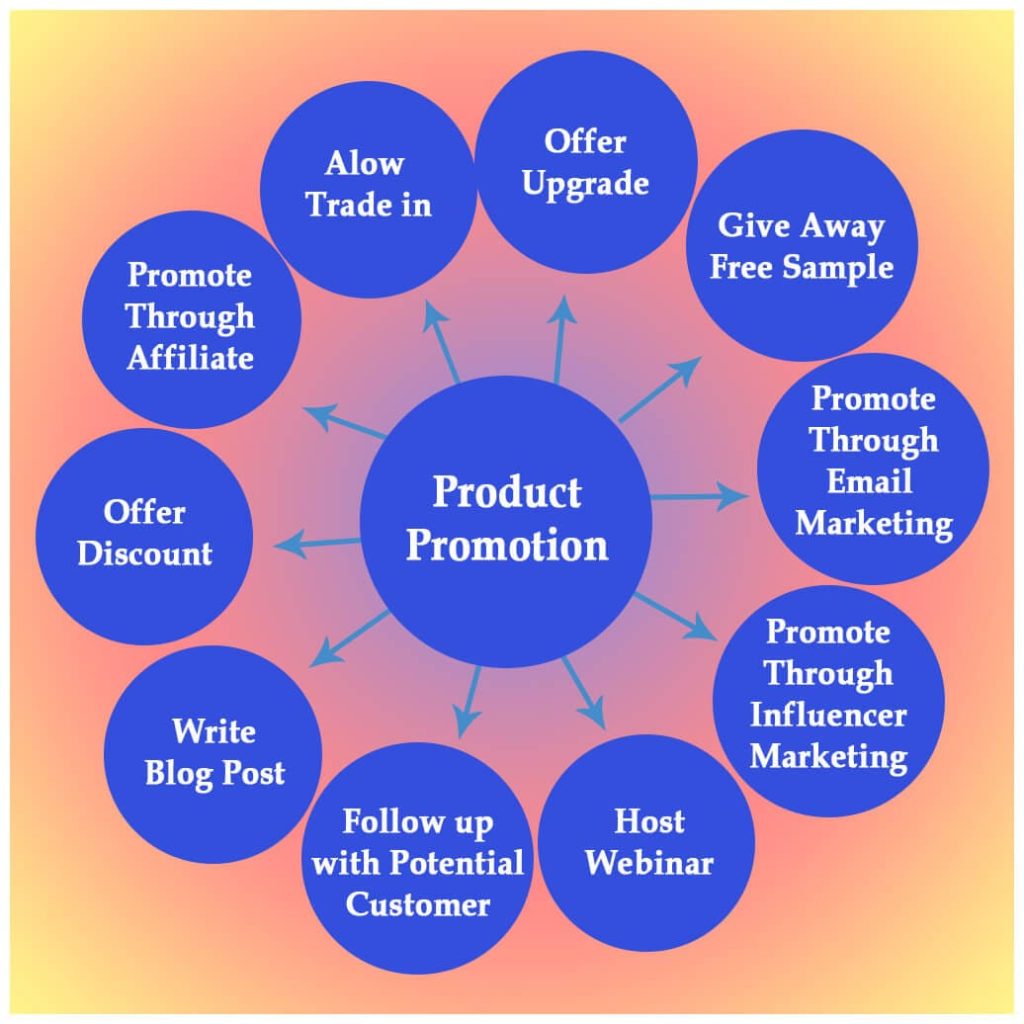
Effective marketing is crucial for the success of your reseller business. No matter how great your products are, they won’t sell without the right promotion strategies.
Use social media platforms, email marketing, and paid advertising to draw attention to your offerings.
Create engaging content that highlights your products' value. For example, use Instagram and TikTok to showcase products in action, or produce tutorials demonstrating how your items solve specific problems for your audience.
Incorporate search engine optimization (SEO) into your marketing strategy, especially if you have your own website.
By optimizing your product descriptions with keywords like “how to become a reseller,” you can enhance visibility in search engine results, attracting more potential customers to your store.
Step 6
Manage Orders and Customer Service
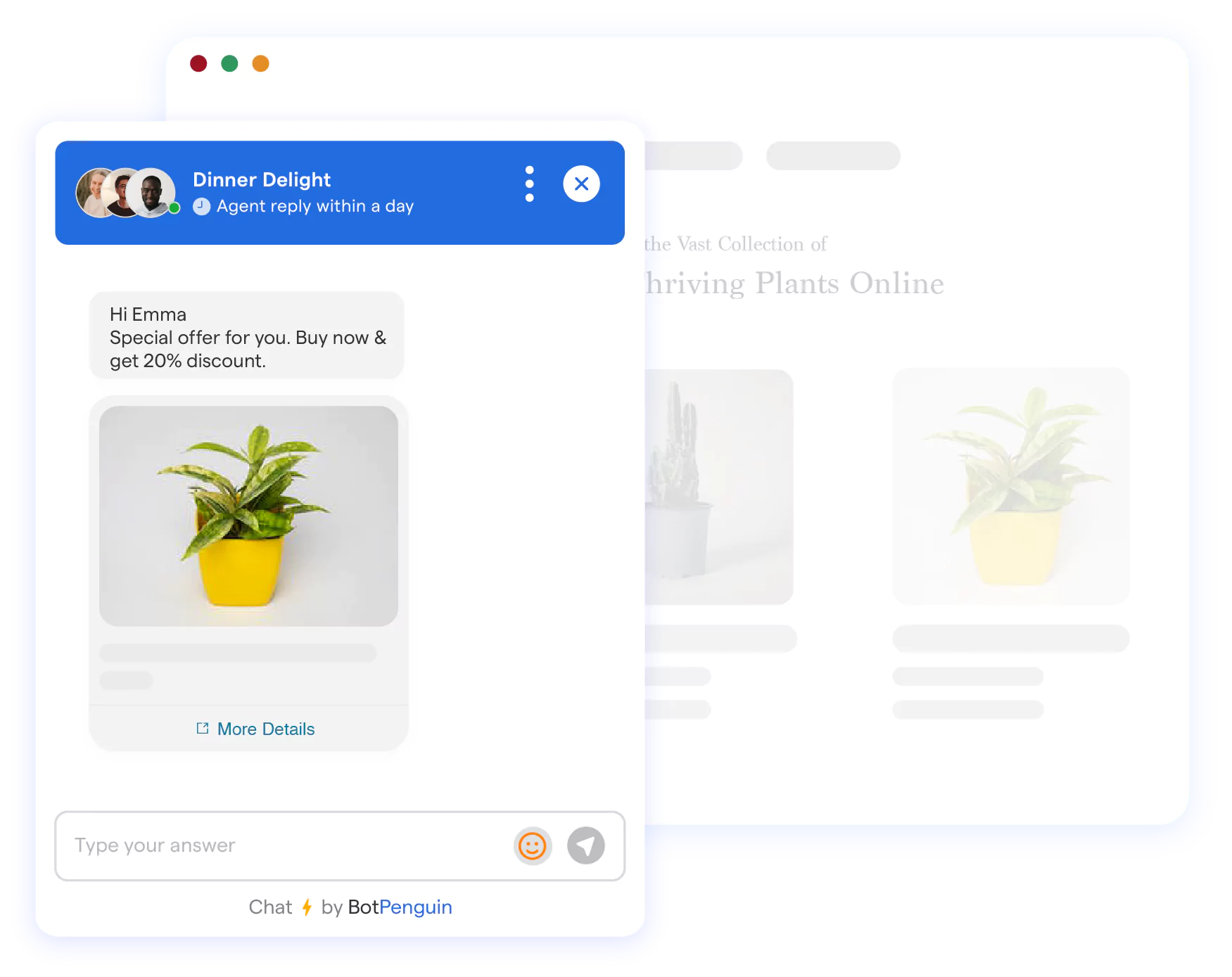
Once your reseller business is thriving, efficient order management and stellar customer service become your primary focus. It's essential to establish a seamless process for handling orders, whether you're shipping products yourself or partnering with a dropshipping service.
Efficient order management not only leads to happier customers but also translates into better reviews and repeat business.
Customer service is equally crucial in your reseller journey. Respond promptly and courteously to customer inquiries, and ensure a hassle-free return and refund process. Providing excellent customer service can set you apart from competitors and foster long-term customer loyalty.
For an even smoother experience, consider using tools like BotPenguin. This chatbot platform can automate your customer service, enabling you to handle inquiries around the clock without human intervention.
With BotPenguin, you can ensure that every customer feels valued and attended to, which is vital for maintaining a positive brand reputation. By integrating BotPenguin into your business model, you can enhance the customer experience and free up your time to focus on growing your reseller business.
Suggested Reading:
Become a Whitelabel Chatbot Reseller Today with BotPenguin!
Pros and Cons of Being a Reseller
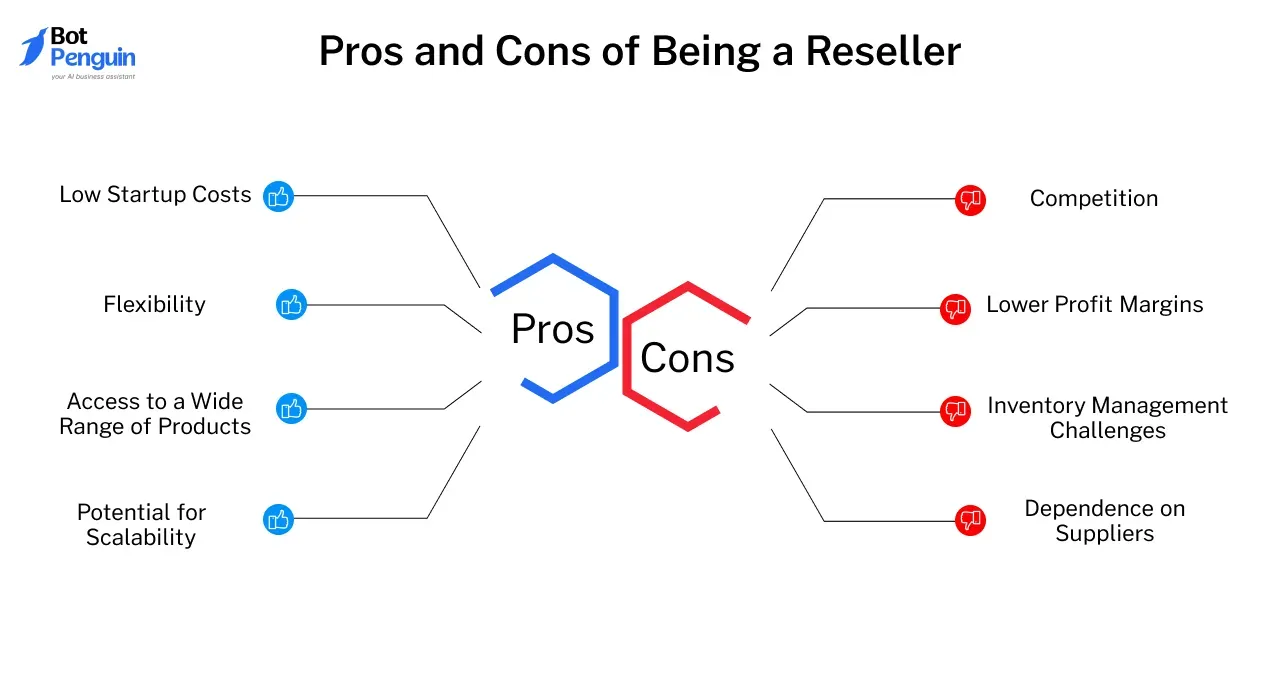
Like any business model, reselling comes with its unique set of advantages and disadvantages. Understanding these factors is crucial when you're asking yourself how to become a reseller.
Pros
The following are pros of being a reseller:
- Low Startup Costs: Starting a reseller business usually requires less capital than other types of businesses. You don’t need to create products, which saves on manufacturing costs.
Many resellers start by sourcing items from wholesalers, allowing them to test the market with minimal investment.
- Flexibility: Reselling can be run from anywhere with an internet connection. Many people begin reselling as a side hustle, gradually scaling it into a full-time income.
This flexibility makes it an excellent option for those seeking part-time work or additional income streams.
- Access to a Wide Range of Products: As a reseller, you can choose from thousands of products without the need to manufacture anything yourself.
This allows you to pivot your business quickly in response to changing market trends. For example, if there’s a surge in demand for eco-friendly products, you can effortlessly shift your focus to those items.
- Potential for Scalability: With effective marketing strategies, your reseller business can grow significantly. You can expand your product range, collaborate with new suppliers, or even launch additional online stores to scale your operations.
Cons
The following are the cons of being a reseller :
- Competition: The reselling market is highly competitive, especially online. Since you’re selling widely available products, you may face numerous competitors selling the same items. To differentiate yourself, you’ll need a strong brand and effective marketing strategy.
- Lower Profit Margins: Resellers typically operate with thinner profit margins compared to manufacturers. The more middlemen involved (such as suppliers and shipping services), the slimmer your margins become. Therefore, selling in high volume is essential to achieving significant profits.
- Inventory Management Challenges: If you’re not using a dropshipping model, managing inventory can be difficult. You’ll need adequate space for product storage and systems in place to track stock levels. Overstocking can lead to unsold products, while understocking can result in missed sales opportunities.
- Dependence on Suppliers: Your success as a reseller largely hinges on the reliability of your suppliers. Delays or quality issues from a supplier can harm your reputation with customers. It’s prudent to have backup suppliers to avoid disruptions in your supply chain.
Incorporating tools like BotPenguin into your workflow can help mitigate some of these challenges, especially in customer service and order management, allowing you to focus on growing your reseller business while maintaining excellent customer relations.
BotPenguin: Your Gateway to Chatbot Reselling
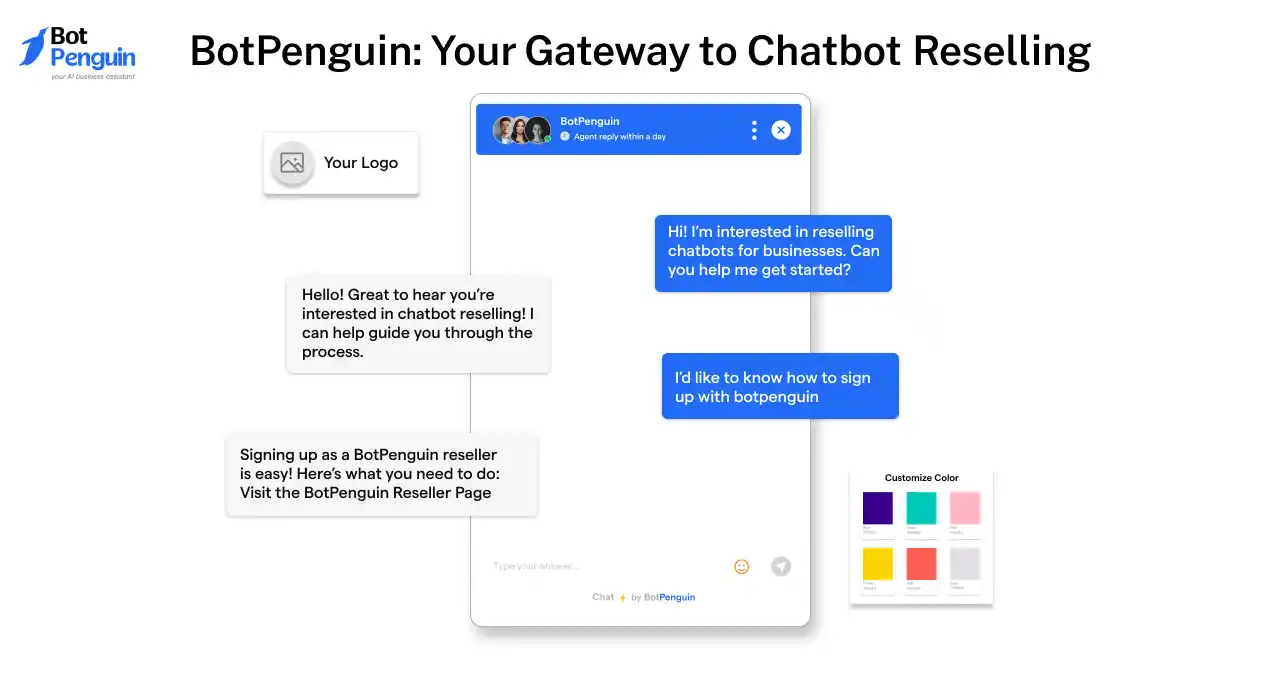
BotPenguin is an innovative chatbot reselling platform that empowers you to design and deploy chatbots across a variety of platforms, including websites, social media channels, and messaging apps.
With its intuitive drag-and-drop interface and an array of pre-built templates, creating customized chatbots has never been easier. Plus, its seamless integrations with popular tools like Google Sheets and Slack ensure that you can streamline your operations and enhance productivity.
One of the standout features of BotPenguin is its advanced technology, including natural language processing (NLP) and machine learning capabilities. These tools enable your chatbots to understand and respond to user inquiries more effectively, providing a personalized customer experience.
Additionally, BotPenguin supports multiple languages, making it an excellent choice for businesses with a global presence or those looking to expand into diverse markets.
What sets BotPenguin apart is its flexible pay-as-you-go pricing model, allowing you to only pay for the features and resources you actually utilize. This approach is particularly beneficial for resellers looking to manage costs effectively.
Furthermore, BotPenguin offers a free trial, giving you the opportunity to explore its functionalities and assess its suitability for your needs before committing to a subscription.
If you're contemplating BotPenguin as your chatbot reselling solution, it’s wise to delve into its features, pricing structure, and customer testimonials. This research will help ensure that the platform aligns with your business goals and budget.
While you may not be a reseller yourself, BotPenguin provides a robust foundation for companies and individuals eager to develop and sell their chatbots, opening up exciting avenues for entrepreneurship.
Conclusion
In conclusion, becoming a reseller offers an exciting opportunity to tap into the entrepreneurial spirit without the burdens of manufacturing products.
By carefully selecting your niche, researching reliable suppliers, and implementing effective marketing strategies, you can build a thriving business that fits your lifestyle.
While there are challenges to navigate, such as competition and inventory management, the potential for flexibility and scalability makes reselling an attractive venture.
Remember that exceptional customer service plays a crucial role in your success; maintaining strong relationships with your customers can lead to repeat business and positive referrals.
As you embark on this journey, consider leveraging innovative tools like BotPenguin to streamline your customer service and enhance engagement.
With BotPenguin, you can efficiently manage inquiries and provide top-notch support, setting your reseller business up for long-term success. Embrace the reseller path and watch your entrepreneurial dreams come to life!
Frequently Asked Questions (FAQs)
What is a reseller, and how do they make money?
A reseller is an individual or business that purchases products from suppliers at a lower price and sells them at a markup to earn a profit.
Resellers focus on sourcing popular products, marketing them effectively, and managing sales without the burden of manufacturing.
They can earn money through various models, including wholesale purchasing, dropshipping, and even affiliate marketing, where they earn commissions by promoting other companies' products.
How do I become a reseller with no money?
You can start as a reseller with little to no capital by adopting a dropshipping model. In this arrangement, you partner with suppliers who handle inventory and shipping directly to your customers, eliminating upfront inventory costs.
Additionally, utilizing social media platforms for marketing and sales can help you reach customers without significant initial investment.
What products are best for reselling?
The best products for reselling are those with high demand and low competition. Popular categories include electronics, fashion, beauty products, home goods, and niche items.
Additionally, seasonal trends can provide lucrative opportunities; for example, holiday decorations or fitness products during the New Year can yield high sales.
Is reselling a profitable business?
Yes, reselling can be a profitable venture, especially when you identify the right products and maintain strong relationships with suppliers.
While profit margins may be thinner compared to manufacturing, successful resellers often make significant income by selling high-volume products and optimizing their marketing strategies to target the right audience.
What platforms can I use to sell as a reseller?
Resellers have a variety of platforms at their disposal, including Amazon, eBay, Shopify, Etsy, and social media platforms like Instagram and Facebook.
Each platform offers unique features that can help you manage your sales and reach a wider audience. For instance, Instagram's visual nature is perfect for showcasing products, while Shopify provides robust tools for creating a personalized online store.
How do I find reliable suppliers as a reseller?
Finding reliable suppliers is crucial for your success as a reseller. You can locate potential suppliers through online directories, industry-specific trade shows, or networking within your niche.
Research their reliability by checking reviews and testimonials from other resellers. Additionally, always request product samples to ensure quality before establishing long-term partnerships.
Building strong supplier relationships can enhance your business's reputation and lead to better pricing and terms.



